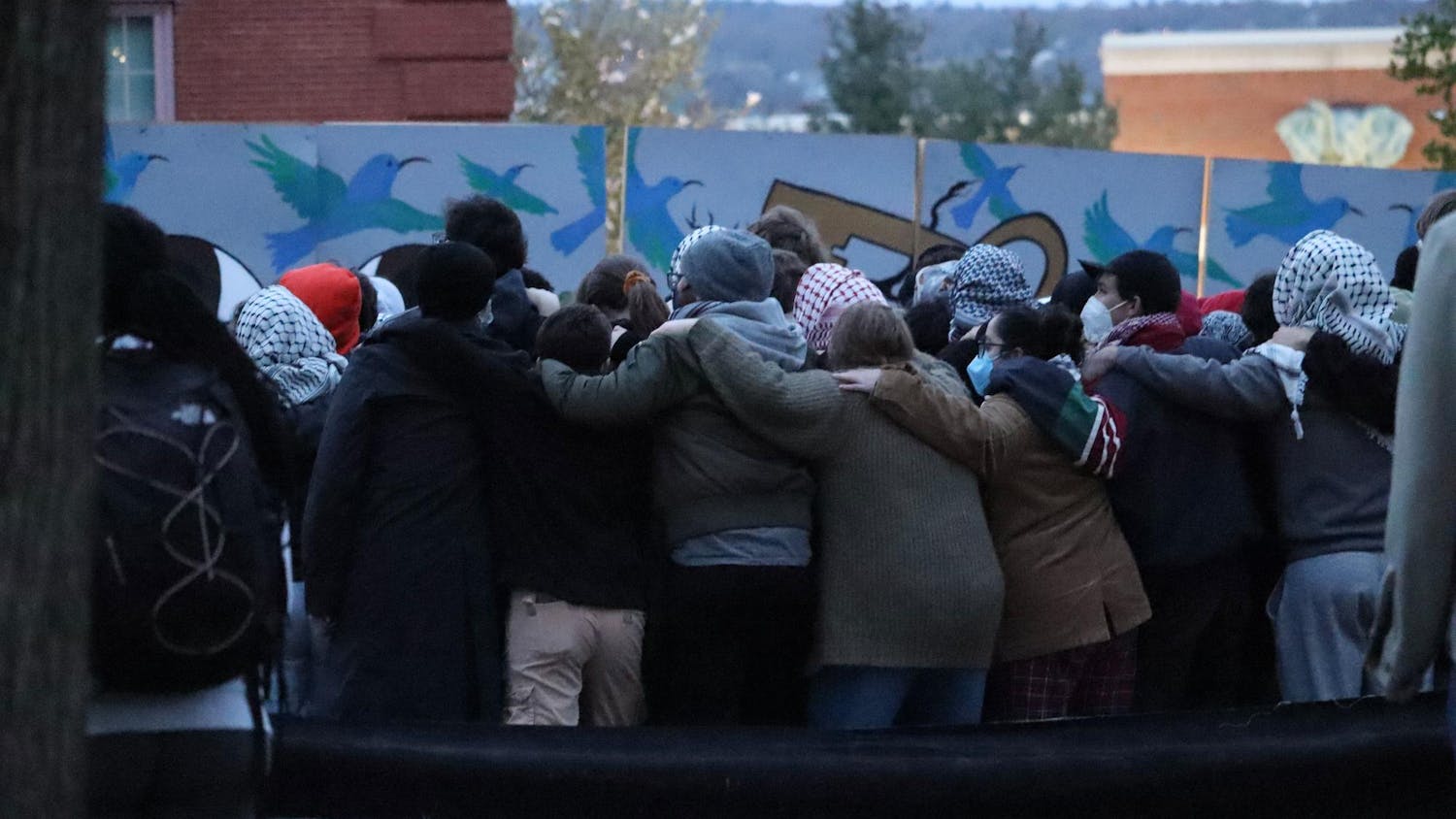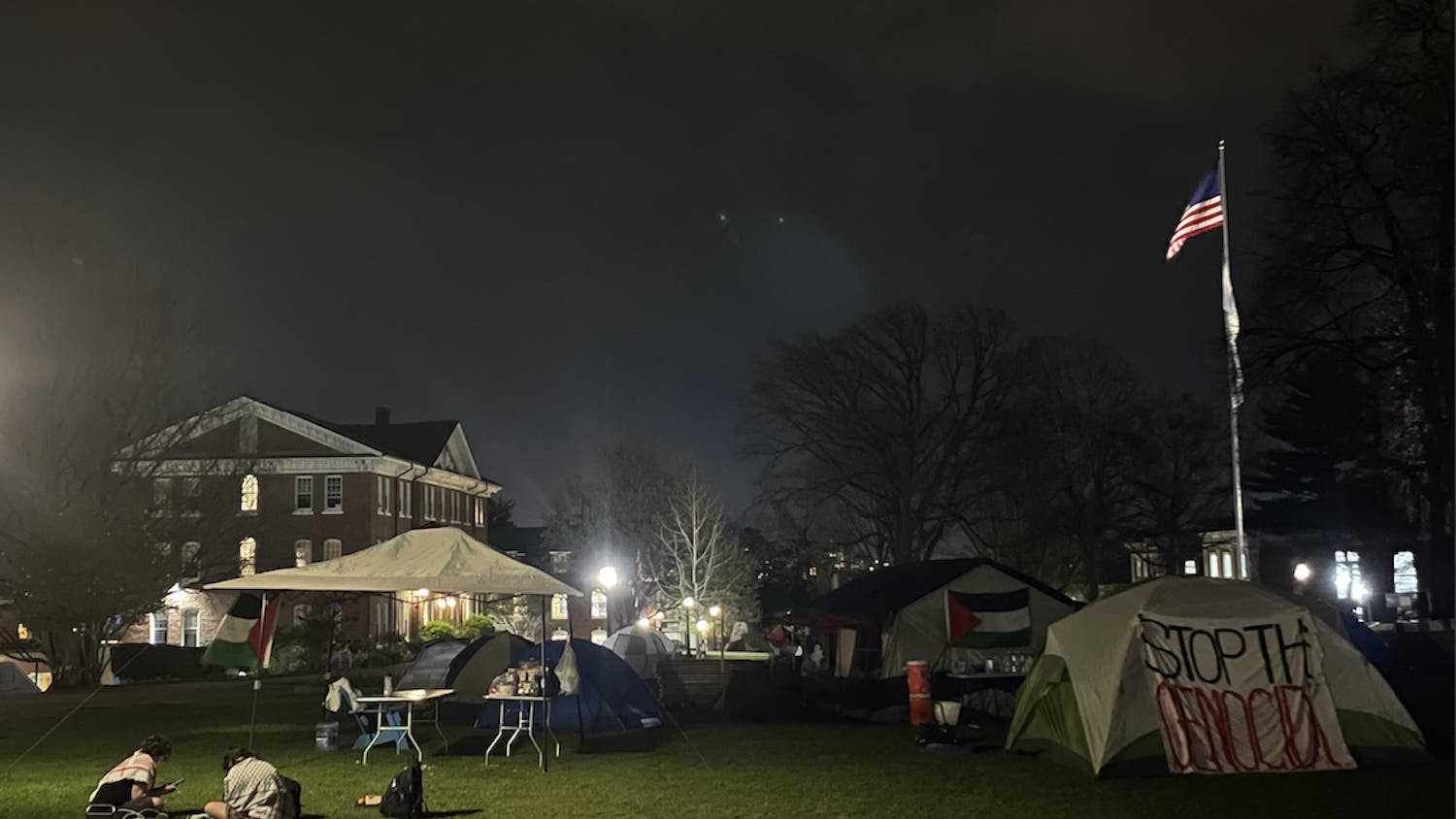When picturing a first-year engineering student's homework, you might imagine differential equations and physics problems sets. In the School of Engineering, new electives involve building Lego robots.
Freshman Kate Shaner did not hesitate to take Simple Robotics, one of seven elective courses offered to first-year engineering and computer science students as part of the pilot first-year experience program in the School of Engineering.
According to Research Assistant Professor of Computer Science Ethan Danahy, Simple Robotics and a few of its fellow elective courses have been a part of the engineering curriculum for many years.
"This course has been around for probably ten-plus years in its half-credit formation and has been passed around a couple of professors," Danahy said.
This year, though, these electives received a facelift as part of the School of Engineering's efforts to revamp the freshman year experience for undergraduate engineering and computer science students.
"My advisor highly recommended this course," Shaner said. "Who doesn't want to play with Legos and get a grade?"
Professor of the Practice Ron Lasser is one of the many faculty members dedicated to this ongoing project.
"The reason we're doing all of this is that we knew that Tufts students didn't feel that they were getting what they thought they needed," Lasser said.
Associate Professor SohaHassoun, who teaches Introduction to Computational Design, argued that the material of the former first-year engineering electives was the source of these complaints.
"It didn't energize them and [increase their] excitement about engineering," she said.
Students who had taken these courses in their original form reflected this sentiment. Senior Brittney Veeck took issue with the narrow focus that these courses gave students in past years.
"It's very easy to have a preconceived notion of what one of the types of engineering is, but I still don't really know what the chemical or biomedical engineers do," she said.
Nevertheless, the importance of these courses was clear. The goal was to combat the simplicity and lack of enthusiasm surrounding the first-year experience, which resulted in the formation of a faculty committee. Led by Dean of the School of Engineering Linda Abriola, this committee conducted research to determine ways in which the university could improve the freshman experience for incoming engineering students.
"We did both written surveys as well as informal [question-and-answer] sessions with upper level students over the past couple of years," Lasser said. The result of this research was a readjustment of the curricula for engineering electives taken by first-year students.
According to Lasser, these newly designed courses diverge in many ways from their predecessors.
For example, they are full credit courses that meet twice per week, as opposed to the previous courses, which were offered once per week for half credit. Danahy, who has now taught Simple Robotics in both its half-credit and full-credit forms, applauded the move.
"Changing from the half credit to the full credit, the difference is that I can cover more material," he said. "I'm allowing students to get more in-depth in the various projects they are working on."
When it came to selecting courses to constitute the new first-year experience program this fall, Abriola collected proposals from across the various engineering departments. Many professors, including Hassoun, jumped at the opportunity to teach one of these courses.
"I thought it would be an incredibly exciting opportunity to reach out to newer students and engage them in projects and research early on," she said.
Lasser explained that the courses selected were required to meet certain criteria.
The courses, he said, had to provide an introduction into engineering subject matter while also focusing on leadership, teamwork and project management.
"[Students] want to make sure that the course is relevant so that there's a connection from theory to solving problems in the real world, rather than just doing math," he said.
The emphasis on real-world application was important to both professors and students.
"The output of your education isn't to have a [number of] degrees," Shaner said. "The output of your education is to make something useable for the larger community."
A team-based curriculum is another aspect that these electives all have in common. Professor of the Practice Eric Hines teaches Structural Art - one of the many courses that engage students in group projects. Hines' course also provides the first-year students with the chance to interact with engineers in their senior year through a mentorship program, a feature of his course even before the move to the full-credit model.
"What I notice is that the first-years are able to develop relationships with their senior mentors that are different from the relationships they develop with me," he said.
Senior mentor John Gill, who took Structural Art as a freshman, recalled the benefits of being able to connect with his senior counterpart at the time and argued that little has changed in first-year students' mindsets.
"The one thing that I really wanted to do was meet upperclassmen who had all of this wisdom to impart," he said. "[The freshman] were overall really impressed with the fact that they were coming in and weren't just sitting in on a lecture but were down in a lab with seniors."
Danahy emphasized that the project-based nature of these courses helps students understand the extent to which their skill and knowledge levels will grow over the course of four years at Tufts.
"Here they are in my class building these little Lego robots, but their solutions aren't very sophisticated," he said. "They then realize that there's this gap between where they are and what's actually happening in the field."
Danahy's hope is that these elective courses will motivate students to seek the information needed to fill that gap.
"I want these kids to see the relevance, to see why they are doing it and then have the energy to go on for the next three years of their undergraduate degree," he said.
Despite all of the changes, the program is still a work in progress.
"We're surveying students before and after," Lasser said. "If there are problems, we're going to make modifications and upgrade the courses for next fall."
While it may be too soon to tell whether these redesigned courses are an improvement on the past, the excitement for them is already palpable. Freshman Charles Colley said that he was excited to work with robotics hands on.
"That's what I'm most excited about because everything else is just pen and paper," he said. "I may [even] decide to pursue robotics further, and it may change my idea of what I want to do [in the future]."





